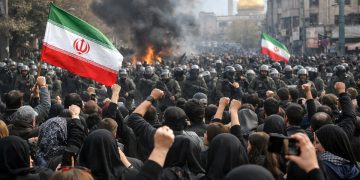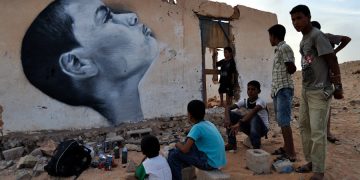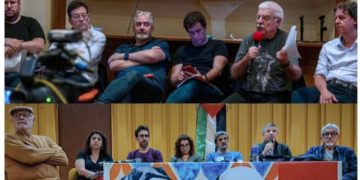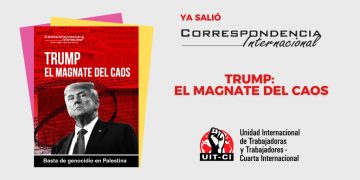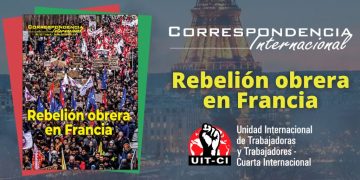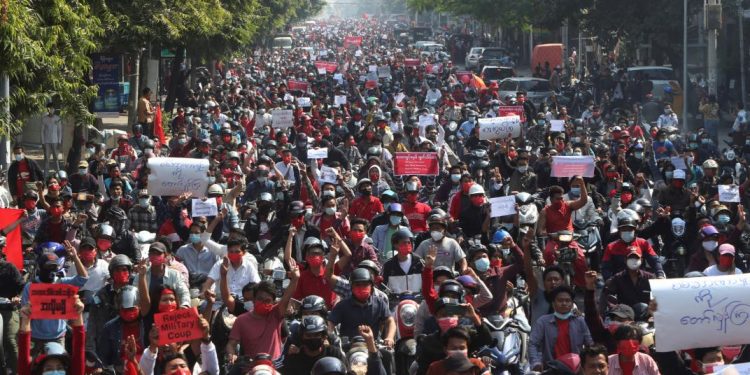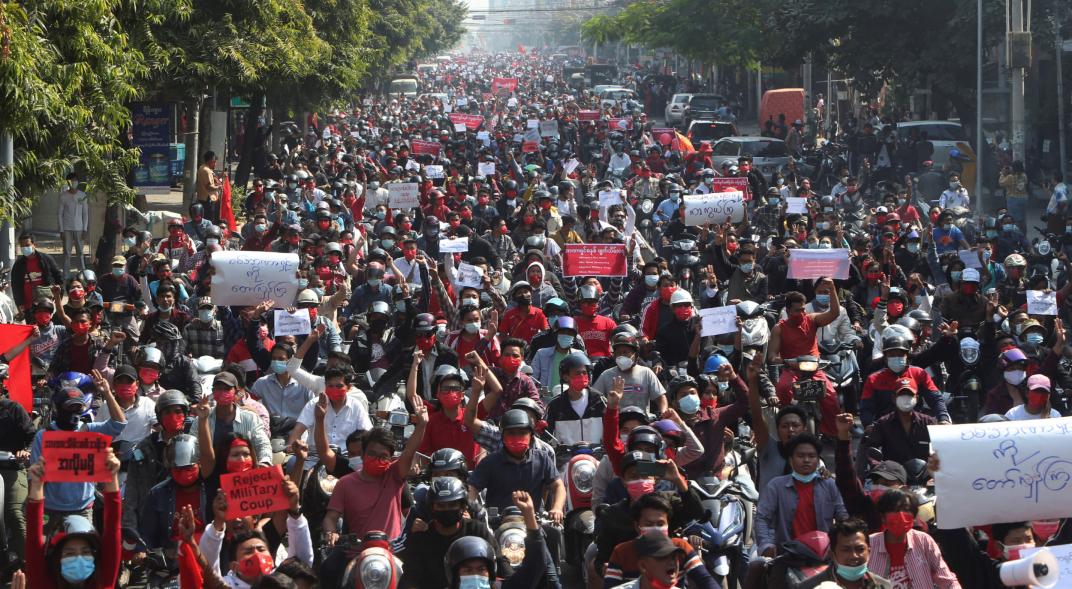 By Miguel Lamas, a leader of the IWU-FI.
By Miguel Lamas, a leader of the IWU-FI.
A general strike started on Monday 8 February and massive mobilisations are shaking Myanmar (formerly Burma). They reject the military coup d’état on Monday 1 February that dissolved the parliament elected in November and imprisoned President Win Myint, the national leader and state councillor Aung San Suu Kyi and dozens of members of the civilian government.
The general strike is well attended and includes textile workers called by their union, teachers, doctors, nurses, students and even firefighters. Hundreds of thousands are on the streets of the capital Yangon and other major cities for the third consecutive day.
The party led by San Suu Kyi (National League for Democracy), formally in government since 2016, won the parliamentary elections with 83 per cent of the vote, putting at risk the military rule of the state that has been in place for more than half a century. The constitution, which the military made in 2008 with a supposed democratic opening, allows for elections but leaves the military in full control of the ministries of interior, defence and borders, and the generals elect 25 per cent of parliamentary seats. Changing the constitution requires military approval.
Suu Kyi, daughter of Burmese independence hero General Aung San, became one beacon of the country’s pro-democracy movement. In 1991, she won the Nobel Peace Prize for her struggle for democracy and human rights. They put her under house arrest from 1995 to 2010 by the military dictatorship. Now she has been arrested again on the ridiculous charge of having several “illegally imported” walkie-talkies in her house, which could lead to a three-year prison sentence.
Myanmar, with 54 million inhabitants, is one of the poorest countries in Asia. They have persecuted ethnic minorities for years, the Rohingya Muslim people have been denied citizenship, thousands have been killed and some 700,000 have had to flee the country. They have reported forced labour in the mines.
Their economy is agrarian. The military controls hundreds of mining licences in the country’s lucrative ruby and jade mines, which are worth an estimated $31 billion, almost half of the country’s GDP. China has a growing economic presence and excellent relationships with the military. It is the largest trading partner (one third of foreign trade) and there are 69 Chinese multinationals in mining, hydropower, automobile production, oil and gas extraction. But there are also deep ties with Western multinationals. The spokesperson for the NGO Justice for Myanmar, Yadanar Maung, says that Myanmar Oil and Gas Enterprise (MOGE) is the most lucrative military business, with contracts with multinationals such as France’s Total, US-based Chevron and South Korea’s POSCO. The Spanish multinational Zara has contracts with companies to manufacture luxury clothes with workers at less than 80 dollars a month.
We join the popular demand for the release of prisoners, for the military to leave and for the electoral result to be respected. The UN Security Council expressed “concern” about the events, but because of the veto of China and Russia, it has refused to condemn the coup. The USA and Europe “condemn”, but continue to do good business and exploit the workers in the country.
Since 2016, during the capitalist government of Sann Suu Kyi, she did nothing to change or denounce the brutal repression of people, nor the over-exploitation of workers. This reflects that she defends the interests of the Myanmar bourgeoisie associated with imperialism and not the interests of the oppressed.
This great democratic uprising against the military coup also shows the need for a political alternative of the working people, for full rights for the national minorities and labour rights against imperialist exploitation.









